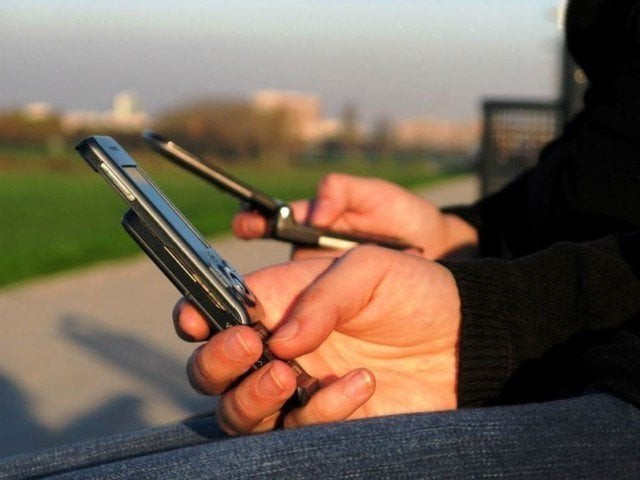FIA received 7,500 complaints regarding fake calls this year
Out of the total, 1,277 complaints converted into inquiry and only 14 cases registered

Every year, people lose hefty amounts to unsolicited and fraudulent telephone calls as scammers continue to prey on their good intentions.
These cheaters befool people in different ways to deprive them of their hard-earned money – sometimes by asking them to invest in a lucrative scheme or business while in the other by threatening or scaring them.
Minister of Interior Ijaz Ahmad Shah recently informed the National Assembly that until this this time of the current year, the Federal Investigation Agency’s (FIA) Cybercrime Wing (CCW) received a total of 7,577 complaints regarding unsolicited and fraudulent calls where common people were monetarily deceived.
More than 7,500 fake calls in 10 months (293 days) means that on an average 778 calls were made in a month while 26 in a day.
The interior minister revealed before the lower house that out of the 7,577 complaints, 1,277 were converted into inquiry and only 14 cases were registered in this regard.
The details emerged after PPP MNA Abdul Qadir Patel asked the interior minister whether authorities concerned had taken notice of a large number of unsolicited calls, which were made by fraudulent people to rob a common man on different counts and what action they had taken for the purpose.
He also enquired if the relevant officials had failed to apprehend the owners of SIMs, which were used in such unsolicited calls.
He further questioned whether it was possible to use such SIMs for making calls after biometric verification and that what steps the government had taken to make the holder of these SIMs accountable under Prevention of Electronic Crimes Act (Peca) 2016.
The interior minister told the NA that unsolicited calls made on GSM was a mandate of the local police under section 25-D of the Telegraphic Act.
He maintained that the FIA’s Cybercrime Wing tracked and traced the owners of such SIMs and interrogated them.
However, Shah observed, the interrogation revealed that all such SIMs were fraudulently activated by using different techniques like silicon thumb impression.
He admitted it was possible that after biometric verification, such SIMs could be used for unsolicited calls.
Shah pointed out that the Pakistan Telecommunication Authority (PTA) had the mandate to check and monitor the illegal SIMs biometric verification under section 17 of Peca (unauthorised Issuance of SIM cards).
During current year, Shah revealed, the FIA CCW had registered seven FIRs under section 17 of Peca and arrested seven accused.
He added that seven biometric verification devices – 2,045 silicon thumb impressions and 5,400 sheets – along with voters’ lists were recovered from their possession.
He apprised the assembly through a written reply that the FIA CCW had established special team in every Cybercrime Reporting Centre, which dealt with complaints against unsolicited callers who defrauded common people, and also jointly launched a crackdown with PTA against a franchise which activated SIMs fraudulently.
He concluded that PTA was the authority, which monitored activation of such SIMs proactively.
In July this year, Shah’s admission before the NA that the cybercrime cases were on the rise and the authorities concerned managed to convict only 14 accused in the last five years evidently depicted that justice moved at a snail’s pace in the country.
On July 16, Shah informed the lawmakers that a total of 1,325 cases had been registered until January 31, 2020, after the enactment of the Peca.
Before the enactment of Peca, he stated, that 1,103 cases were reported with the National Response Centre for Cyber Crimes (NR3C) since 2007, adding that complete charge sheets were submitted in 546 cases, interim charge sheet in 435 cases, while 344 cases were still under investigation.
“The total cases convicted under Peca, 2016 is 14,” the reply stated.



















COMMENTS
Comments are moderated and generally will be posted if they are on-topic and not abusive.
For more information, please see our Comments FAQ